Something rotten in the state of Bulgaria
Opposition to the jab is mainstream in Bulgaria, where less than a third of the population has been vaccinated. More worryingly, the anti-vaxx movement is fuelling a surge in far-right politics. Borzou Daragahi meets the doctor at the centre of the row

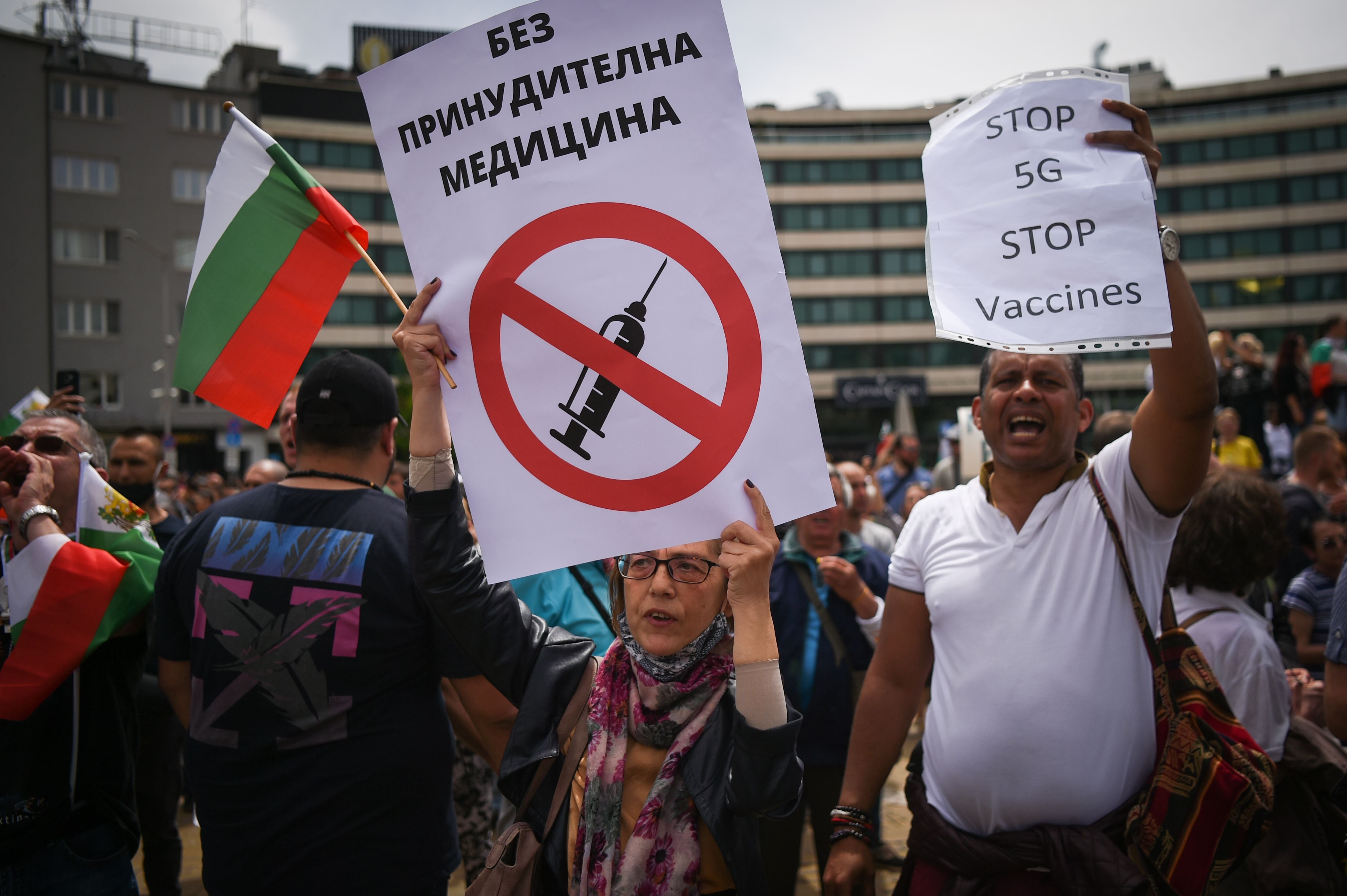
Like many vaccine sceptics around the world, Atanas Mangarov eschews the jab and surgical masks. He cites dubious studies about the efficacy of the various Covid-19 inoculations. He makes the highly scientifically questionable claim that his recovery from Covid provides him with better immunity than the vaccine. He posts articles about vaccine failures and opposition to inoculation requirements to the internet. And he urges anyone he can that getting jabbed is unnecessary, potentially exposing oneself to risky “untested technology”, even as they have been subject to intensive testing and approved by nearly every official health and disease control agency on the planet.
But unlike a whacky uncle or annoying high school pal, Mangarov can’t be ignored, blocked or muted. He is a leading Bulgarian physician and epidemiologist specialising in infectious diseases, serving on several major health European advisory boards. He is also head of a major hospital’s Covid-19 ward.
Almost every day, the lithe and cheerily unvaccinated 65-year-old doctor can be seen roaming the corridors of Professor Ivan Kirov Hospital, in the Bulgarian capital, Sofia, while attending to patients in an intensive care unit almost full of patients suffering from Covid. Even when visiting the sick, he wears no surgical mask, which he also calls unnecessary. Unwilling to get inoculated, he is forced instead to take a Covid test every two days.
He doesn’t subscribe to the view that vaccines are necessarily harmful but he opposes any attempt to punish people who refuse to get inoculated against Covid. “What’s wrong is to force people to vaccinate under threat of losing their jobs or not leading normal social lives,” he says.
Among Bulgarians and across eastern Europe, he’s become a kind of anti-vaxx guru, with millions of followers on social media and regular appearances on television talk shows. On the streets, he’s sometimes mobbed for selfies, as if he were a young rock star or actor rather than a balding physician specialising in deadly scourges.
“The safety of the vaccines should be proven,” he says, as he guides me from his cluttered office up and down stairs and through hallways on a tour of the Covid ward. “They say you should get vaccinated for the sake of other people. But those who are vaccinated can still spread the disease.”
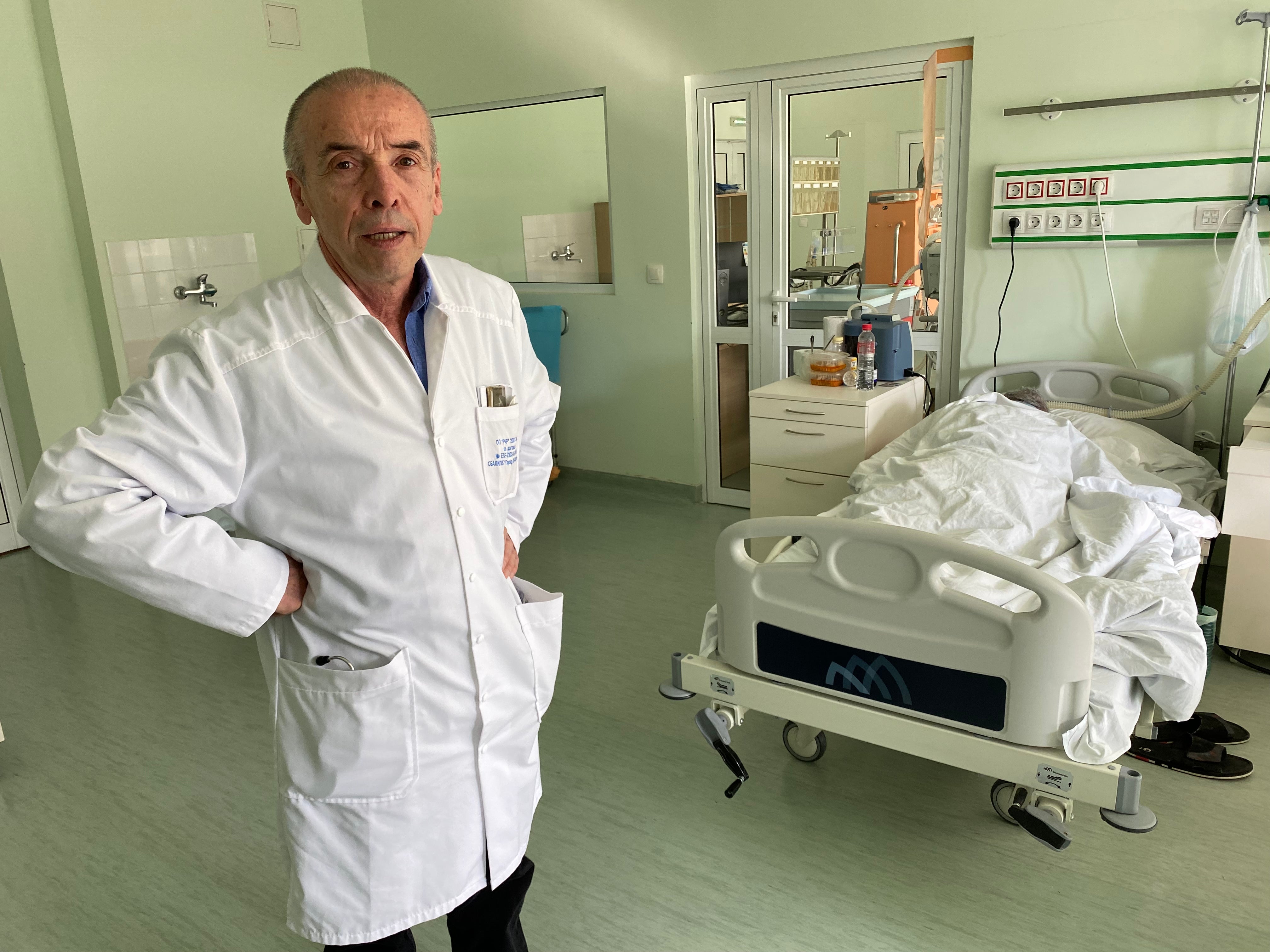
Bulgaria has the lowest Covid vaccination rate and highest death rate in the European Union – even as it has access to plenty of vaccines. But along with neighbouring Romanians and others in eastern Europe, Bulgarians are enthralled by anti-vaccination attitudes and fears promoted through social media and by politicians.
During a visit to Sofia and rural stretches of the country with even lower vaccination rates than the capital last month, I delved deeper into the world of the anti-vaxxers, whose opposition to the vaccine has prompted public health officials to warn it is contributing to the spread of Covid variants that could undermine efforts to bring the two-year pandemic to an end. Though worries and rumours about the safety of the vaccine abound, a deeper political and social dynamic exists in Bulgaria and other eastern European countries. Hit hard by deindustrialisation that followed the end of the communist era and the depopulation accelerated by dissolution of borders within the EU, the region has become fertile ground for conspiracy-fuelled rightwing populism.
Bulgarian authorities have tried to quiet Mangarov down. Administrators at the hospital refuse to visit his ward for fear they’ll get sick, but have taken no action against him
Bulgaria’s vaccine opposition is inflamed first and foremost by mistrust of its current government, as well as scepticism by medical practitioners. Eighty per cent of Bulgarian physicians oppose Covid vaccinations. The reasons are various and complicated. Experts say it’s in part because medical salaries are low, inspiring the most talented and cosmopolitan doctors to immigrate elsewhere within the European Union. That leaves medical personnel who tend to hold more conservative and traditional views and are more susceptible to anti-vaccination messages promulgated by far-right voices.
But Mangarov says up until the pandemic, he was often on the opposite side of the anti-vaxxers, going on television and arguing in favour of inoculations for children against strident opponents. It’s not vaccines he opposes. Just this one. “People are not taking this vaccine because they don’t trust its safety record,” he says.
But if safety is his concern, some of his actions are baffling. Despite World Health Organisation guidelines and protocol practiced by every medical practitioner around the world, on the hospital ward, neither Mangarov nor any of the other medical staff wear surgical masks. “You can’t work or breathe with them on,” he says, arguing that they’re useless.
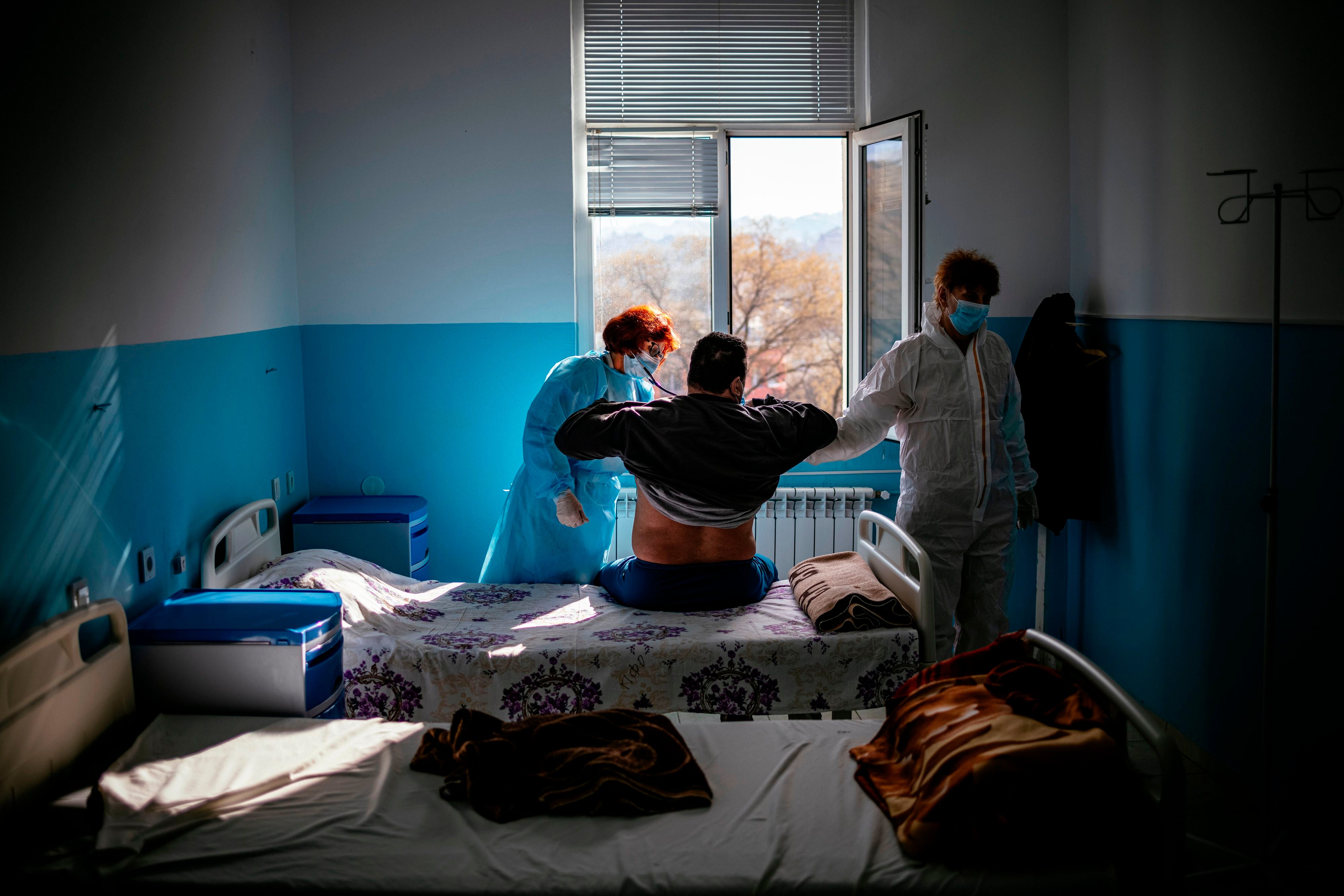
In one hospital room, a patient recovering from Covid lies face down, visibly struggling to breathe because he has an even harder time breathing while lying on his back. His wife, also unmasked, is attending to him. Despite her husband’s illness, both she and her husband say they haven’t and won’t get vaccinated. Mangarov nods in approval.
Bulgarian authorities have tried to quiet Mangarov down. Administrators at the hospital refuse to visit his ward for fear they’ll get sick but have taken no action against him. His critics are aghast at his claims and his prominent status.
“He’s the biggest in the line of Covid deniers and anti-vaxxers,” says Tihomir Bezlov, a researcher at the Centre for the Study of Democracy, a Sofia think tank. “In most of Europe, he would be fired.”
Anti-vaccination fervour has shifted the political ground in Bulgaria, becoming a wedge for the far right. In November elections an ultra-nationalist political party called Revival entered parliament for the first time on a platform that includes staunch opposition to vaccine mandates. It won 13 seats – out of 240 – in parliament, with Mangarov to serve as its chief scientific adviser. Its leader, Kostadin Kostadinov, even defends the medical practitioners who issue fake vaccination certificates, likening them to those who shielded minorities from Nazis during the Holocaust.
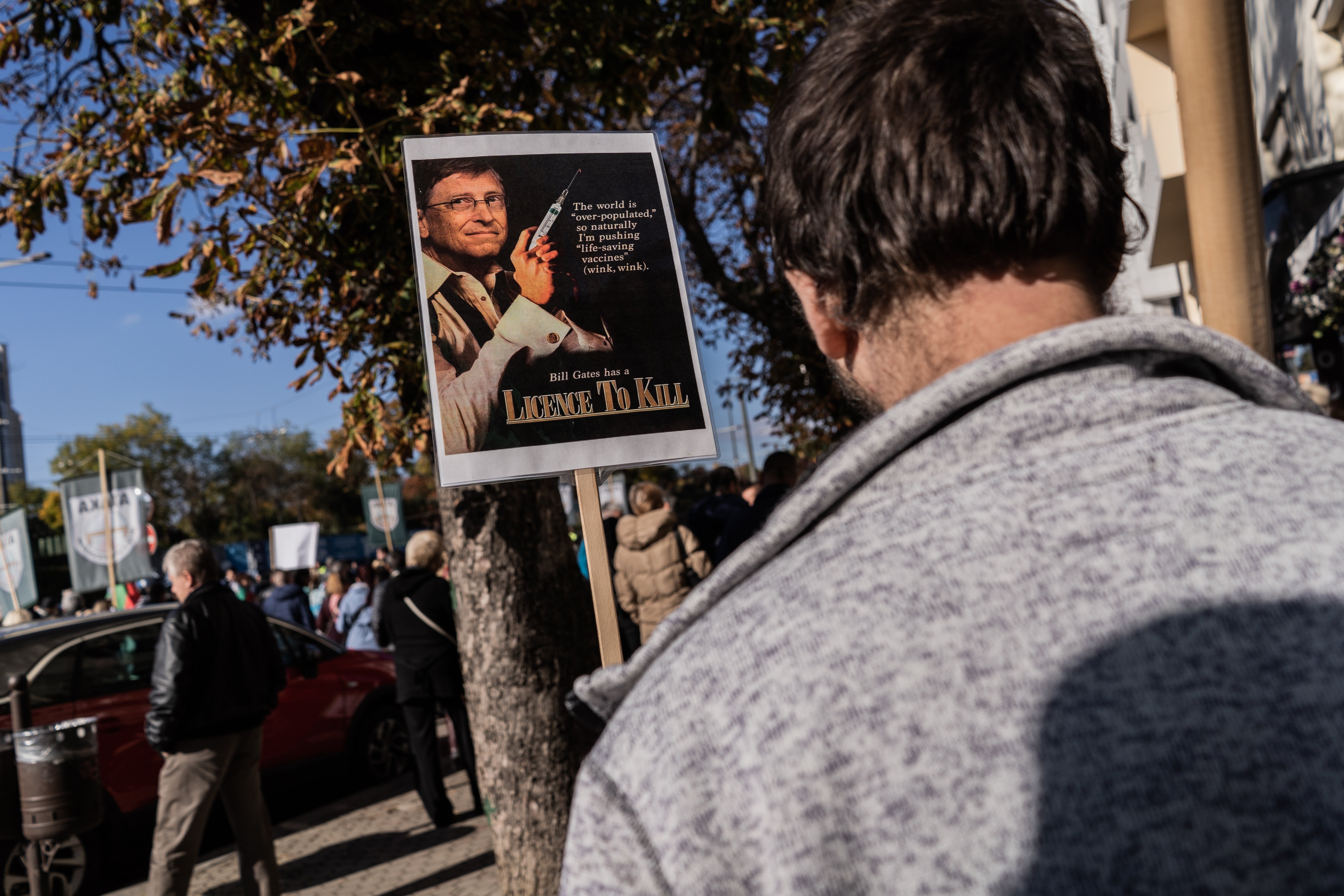
“During the Second World War there were Jews who received fake certificates saying they were not Jews,” he says in an interview. “Would you blame someone for such an act? Do you think this should be punished?”
Conversations with anti-vaxxers can be harrowing rabbit holes of conspiracy theories about global plots, often laced with anti-Semitic overtones. One attempted to steer the conversation toward a product they were selling that captures “negative energy” and transforms into something that wards off Covid. In general, they prefer to operate in the shadows, and although they’re very vocal on social media, they often go quiet when asked to meet. During attempts to reach out to Bulgarian anti-vaccination activists, I was accused of being paid by pharmaceutical companies to push vaccine use. “Who paid you to promote the vaccine?” One says.
Many have attributed eastern Europe’s overwhelming mistrust of the vaccine to decades of failures by corrupt, incompetent governments which abandoned vast swaths of the population
“Most of the big media is being paid by Pfizer,” says Volen Nikolov Siderov, founder and leader of the far-right Ataka party, which operates its own TV channel and a newspaper promoting anti-vaccination. He spoke during an interview in his offices, alternating between diatribes against western media and global conspiracies and boasts about the superiority of Bulgarian culture.
“We are very different from the French,” he says, when I ask him whether French people were foolish for having a vaccination rate three times higher than Bulgaria’s. “When Bulgaria was an empire in the seventh and eighth centuries, the French people were just swaddling through muddy puddles and happy to eat potatoes.”
He describes Covid vaccination as a tool of American imperialism, a way to subject the planet to the whims of western governments and organisations like Usaid, the Westminster Foundation and George Soros’ Open Society Foundation. “They are the smiling face of global fascism,” he says. I ask whether he was worried that he was contributing to political polarisation and radicalism by speaking in such Manichean terms about a public health matter. “If there is such a radicalisation, the people to blame are those who try to forcibly impose vaccination on the people,” he says.
Following the lead of other European nations, Bulgaria opted in October to require certificates of vaccination, Covid recovery or testing for people to dine at restaurants and work at certain jobs. This prompted street protests and fuelled even more anger by anti-vaccination advocates. In the Bulgarian town of Montana, a two-hour drive north of Sofia in one of the least vaccinated regions of the country, a group of activists comes out every day to protest in front of the city’s main vaccination centre. They hold a megaphone and signs, and they warn those seeking to get jabs they would die, just as anti-abortion rights activists stand in front of women’s health clinics and tell those entering they would burn in hell.

The protesters all say they voted Revival in last month’s elections. They’ve been coming since the October vaccine certification mandate went into effect. Most of them are friendly, but one is hostile, accusing a pair of visiting journalists of being foreign agents. But she cools down and begins to speak about the source of her anger. Her name is Ilonga Simeonova, in her forties, and apparently ringleader of the anti-vaxxers in Montana. “We don’t have anything,” she says. “We don’t produce anything. We don’t have jobs. We don’t have healthcare. The country is dying. Our culture is being invaded. We are slaves of the US, Russia and the European Union. The vaccine is just another way for the globalists to control us.”
Many have attributed eastern Europe’s overwhelming mistrust of the vaccine to decades of failures by corrupt incompetent governments which abandoned vast swaths of the population. Kostadinov, leader of the far-right Revival, mocks the view that the Sofia government or anyone in Brussels, Washington or the WHO cared about saving the lives of the Bulgarians. He notes that Bulgaria has had the highest mortality rate in the EU for 15 years.
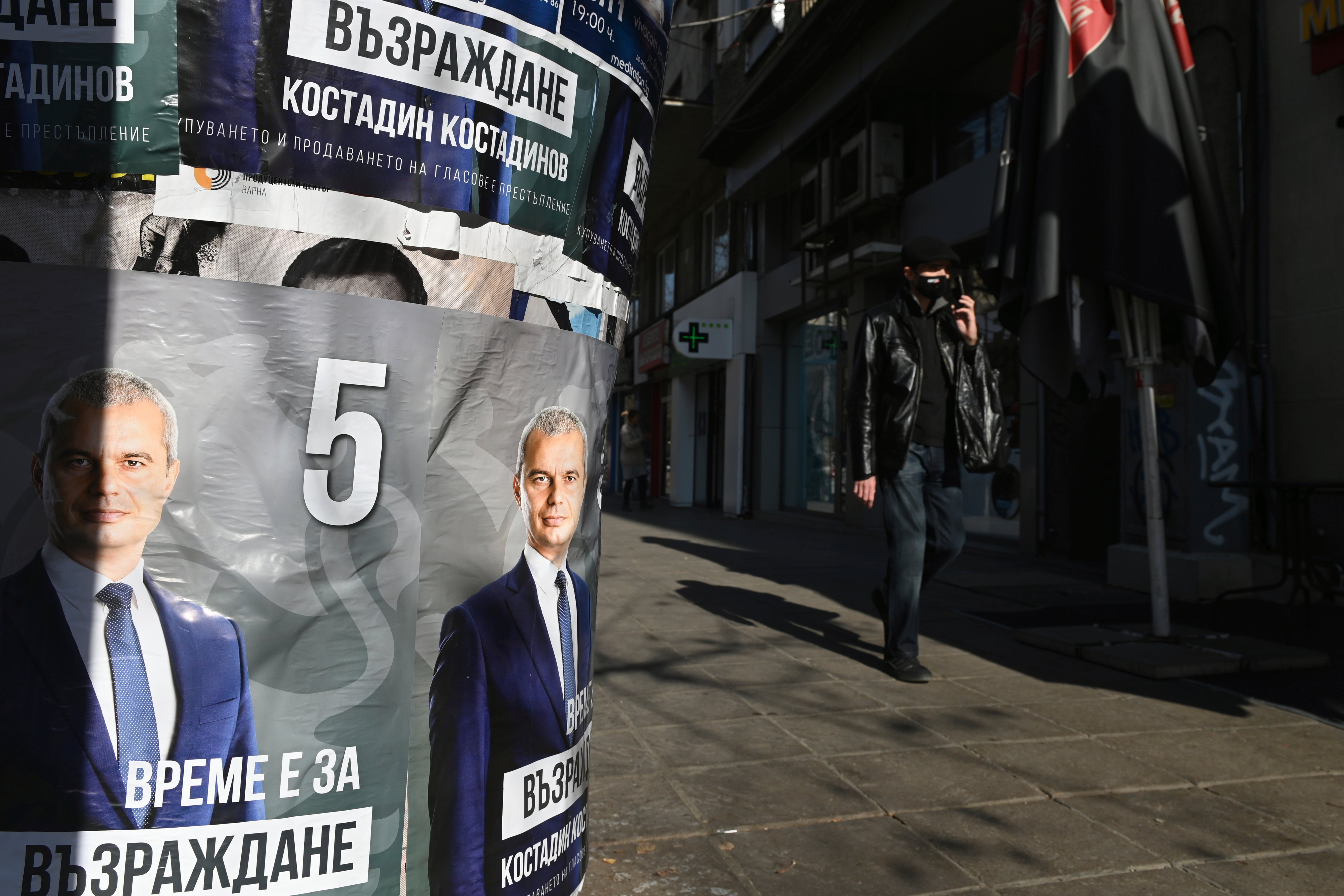
“This has never been a problem for the Bulgarian politicians regardless of which party is in power, because they are all puppets,” he says. “These same people who turned Bulgaria into the fastest dying nation are trying to convince us how much they care about us and institute all kinds of restrictions turning Bulgaria into a concentration camp. We cannot trust the motivations of these people.”
But perhaps more dangerously, eastern European governments’ pandemic policy failures and more systemic faults have allowed anti-vaccination sentiment to merge with the anti-globalisation themes that have driven rightwing populism. It’s the same political and social dynamic fuelling vaccine hesitancy in the rest of the world, including the US and UK. But in fragile states such as Bulgaria, the impact is much greater.
“There is a significant part of the population that thinks they are on the losing end of globalisation,” says Hristo Ivanov, leader of the centrist Yes Party. “They see in globalisation that it makes you lose. You lose your dignity and livelihood. New technologies are telling you that you are basically illiterate. The economy is changing. Gender is changing. Washington and Brussels are making all the decisions and you have no input.”
In the hospital, as we wrap up our visit, Mangarov expresses his frustration at a world where every other dimension seems to be fluid and negotiable except the question of whether he should get a Covid jab or not. “We are living in a world where you can decide if you feel more like a man or a woman, and you will expect me to accept that,” he says. “But if I feel like not getting a vaccine, you won’t accept that?”
Milena Hristov contributed to this report




Join our commenting forum
Join thought-provoking conversations, follow other Independent readers and see their replies
0Comments